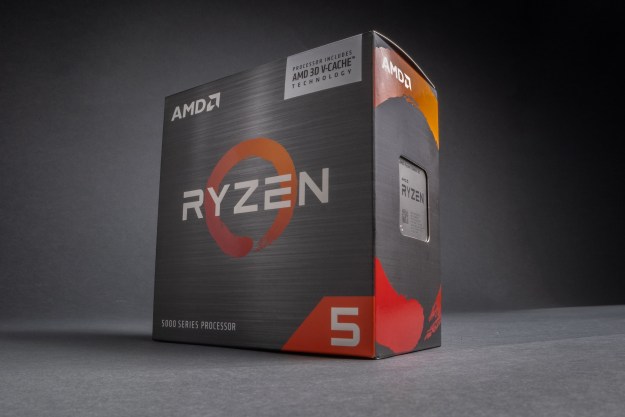Thanks to a well-known Twitter tipster, we now have one of our first looks at the performance of two upcoming AMD Ryzen 7000 CPUs, the Ryzen 9 7950X and the Ryzen 7 7700X. Thanks to leaked benchmarks, we can compare the new processors to their Ryzen 5000 counterparts.
What’s the verdict? So far, it seems that the CPUs have done a spectacular job, beating the previous generation by up to 40%. Can these results be trusted?
Screenshot update, src requests another version.
Sorry for confuse
ST is around 750~780 https://t.co/13cARcig3S pic.twitter.com/gYCD7vxN3w
— 포시포시 (@harukaze5719) August 26, 2022
The benchmarks were shared by Harukaze5719 on Twitter. Although incomplete, the tests do a decent job of showing the performance of two AMD engineering samples. We’re not sure how recent these samples are, so everything is subject to change until reviewers get their hands on the actual finished product.
With that said, the two processors in question are likely going to be some of the best AMD CPUs we’ve seen in a while. The Ryzen 9 7950X is expected to arrive with 16 cores and 32 threads as well as a base clock speed of 4.5GHz that may go up to 5.7GHz in boost mode. The CPU will also feature a massive cache, currently said to be at 80MB combined (64MB L3 and 16 MB L2). The TDP is rumored to be at 170 watts. The Ryzen 7 7700X is supposed to come with eight cores and 16 threads, a clock of 4.5GHz (base) and 5.4GHz (boost), 40MB of cache, and a 105-watt TDP.
As mentioned, the benchmarks cover up some information to protect the source. The leaker said that they scored around 750 to 780 points in the single-core CPU-Z tests. Based on that claim, Wccftech performed some calculations to predict a multi-core score and compare the values to other processors.
Assuming the figures are correct, the new Ryzen CPUs do a decent job in single-core operations but will be slightly outperformed by the best Intel CPUs from the current generation (Core i7-12700K and Core i9-12900K) as well as their upcoming Raptor Lake counterparts. With a score of 780, AMD falls a hair behind Core i9-12900k (819) and more so behind the Core i9-13900k (897.4).
Moving on to multi-core benchmarks brings a much more impressive result. Assuming the calculated score of 16,809 points is close to reality, the Ryzen 9 7950X will trade blows with Intel’s Core i9-13900K and vastly outperform the current-generation Ryzen 9 5950X, here shown with a score of 11,841.

Based on what we see here, the flagship Ryzen 9 7950X might be up to 40% faster than its predecessor in multi-threaded operations, while the Ryzen 7 7700X could beat the Ryzen 7 5800X by up to 20%. Of course, these results are a best-case scenario and are based on rather shaky evidence right now; with that said, a performance increase in the ballpark of 25% to 35% is not unrealistic.
A lot of the signs point toward Intel remaining superior in single-core tasks when both manufacturers launch their next-gen processors. It’s possible that until AMD drops its new 3D V-Cache chips, Intel might be the overall winner, but AMD is likely to be a lot more power-conservative. We’ll find out more soon — AMD Ryzen 7000 is said to release on September 27.
Editors' Recommendations
- The one AMD 3D V-Cache processor you should avoid at all costs
- Intel just launched the ‘world’s fastest’ CPU
- Apple’s M3 Max appears to keep up with Intel’s top desktop CPU
- The gamers have spoken: AMD obliterates Intel in CPU sales
- These two CPUs are the only ones you should care about in 2023




